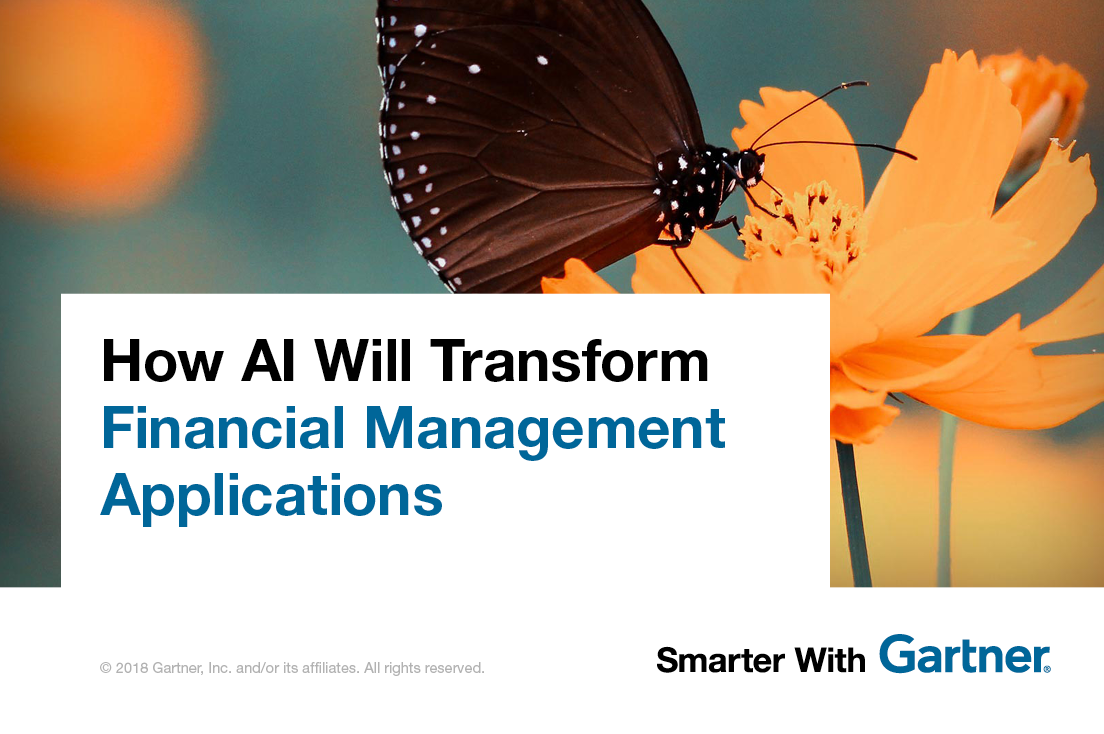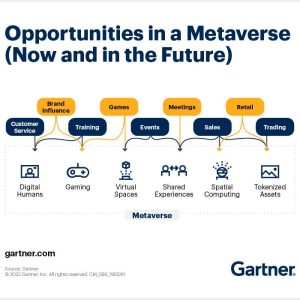AI technology applications are setting the stage for greater competitiveness among vendors in the financial industry
In recent years, public cloud SaaS changed the way packaged applications are delivered, implemented and used, leading to a new generation of solutions and vendors in areas such as human capital management (HCM), procurement and financial management.
“Embedded AI will become a key differentiating factor in finance systems evaluations”
But although various cloud-based financial management applications are now available in the market, they haven’t fundamentally changed the way finance processes work. There is also little functional differentiation between these applications.
All this is set to change as artificial intelligence (AI) is introduced into financial management applications. “By 2020, embedded AI will become a key differentiating factor in finance systems evaluations, and vendors with this capability will be able to highlight greater functional advantages,” says Nigel Rayner, vice president at Gartner.
However, AI is still at an early adoption stage, so application leaders need to focus on how and when AI will deliver business value, rather than get carried away by vendor hype.
Vendors will offer both generic and embedded AI applications
Many vendors have added AI capabilities to their financial management applications. The majority of these were generic AI applications in the form of bots, chatbots and virtual assistants, primarily for casual users who may find it difficult to navigate financial management applications and need an easier-to-use “self-service” experience. However, virtual assistants serve little purpose to users who are already familiar with finance applications. Consequently, deploying AI in the form of virtual assistants may not offer enough value to justify significant time and money investments.
Vendors that have a clear vision for embedding AI technologies in finance processes will be a better fit for financial organizations than those that don’t offer anything beyond the virtual assistant phase.
AI will improve transaction-processing efficiency and reduce period-end close time
Enterprise resource planning (ERP) and financial management applications have achieved significant transaction-processing efficiencies by automating routine finance processes and eliminating the need for manual intervention. But finance processes still need experienced and skilled personnel to deal with exceptions or special cases.
“Many financial forecasting and planning processes are manually intensive and suffer from inherent human biases”
This is where embedding AI technologies — such as machine learning, deep learning and algorithm-based machine reasoning — directly into financial management applications will be transformational.
A potential use case for embedded AI illustrates this impact. Most financial management applications can match incoming payments to outstanding accounts receivable (AR) invoices, provided the payment amount matches the invoice. However, incomplete remittance data, partial payments and payment of multiple invoices on a single remittance can all cause discrepancies that take time and effort to resolve. Embedding AI technologies in financial applications can address these challenges by modelling combinations of payments and invoices in different situations.
AI will predict future financial results based on trends and market data
The ability of AI to improve predictive (what will happen) and prescriptive (the best course of action) financial forecasting processes will change the world of finance management. Currently, many financial forecasting and planning processes are manually intensive and suffer from inherent human biases, as predictive models may be “tweaked” to generate favorable (or expected) outcomes.
Read more: Add Data Science Skills to Corporate Finance Decisions
Cash-flow forecasting, revenue forecasting, cost and expense planning, and balance-sheet planning are all areas of predictive financial analytics that will benefit from AI technologies, although the impact will vary by organization and industry. For example, a product-centric organization with a wide range of products would benefit from more-effective revenue forecasting. A large multinational in a competitive, low-margin industry would benefit from more effective cash-flow forecasting, whereas the impact would be lower in a smaller organization in a high-margin industry.
Organizations should consider being early adopters or partnering with vendors focused on use cases specific to their company and industry.

Gartner for Finance clients can read more in Impacts of Artificial Intelligence on Financial Management Applicationsby Nigel Rayner, et al.










